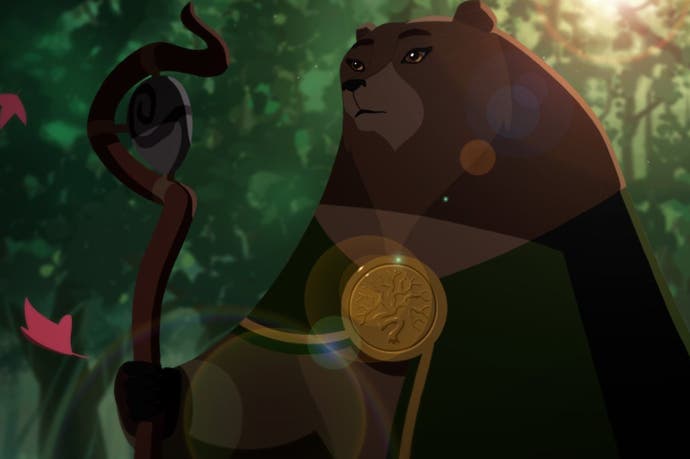Early Access games done right
Some of the games that deliver on their promises.
Dungeon of the Endless, Subnautica - quite a lot of Early Access video games start with spaceships in flames, hurtling artfully towards strange planets, bound for tales of peril and survival. Possibly this is just the best way to kick off a narrative that will involve crafting and permadeath, two of this era's greatest loves. Partly, though, it seems a tacit acknowledgement of how so many people feel about Early Access in general - that it is the place where bright promise burns up, where landing sites become graves.
This isn't the case, of course. For every high profile botch, there's the flowering of something strange and special that traditional development models might have accidentally crushed. Forget Godus, then, and forget The Stomping Ground: here are some of the current crop of Early Access games that seem to be delivering on their promises.
Invisible, Inc
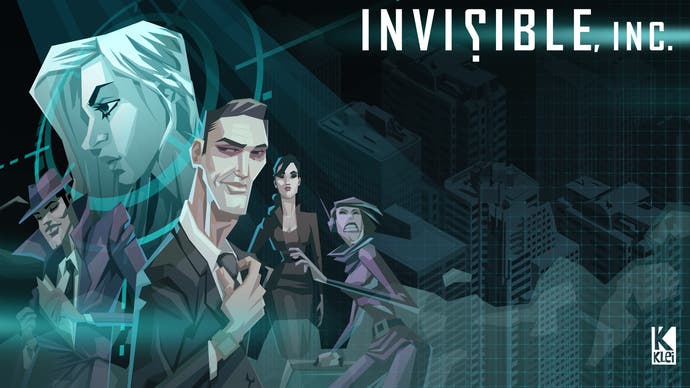
You need precision and you need keen strategy to be a spy - at least you need that to be the kind of spy you get in the movies. Klei seems entirely up to the job, taking the deliriously wonderful premise of a turn-based espionage game, and delivering it via regular updates, two a month, generally alternating between small and big patches, so you're never far away from getting something special.
Invisible, Inc is currently building to its climactic patches, which will deliver a proper story arc and a suitable final mission. Along the way, though, we've already got new enemies, new playable agents, and loads of balance changes. Tellingly, Klei's done this kind of development before, with the gloriously cruel Don't Starve. Don't Starve's also back in Early Access, incidentally, with a new multiplayer build that will become free to existing owners upon completion.
Nuclear Throne
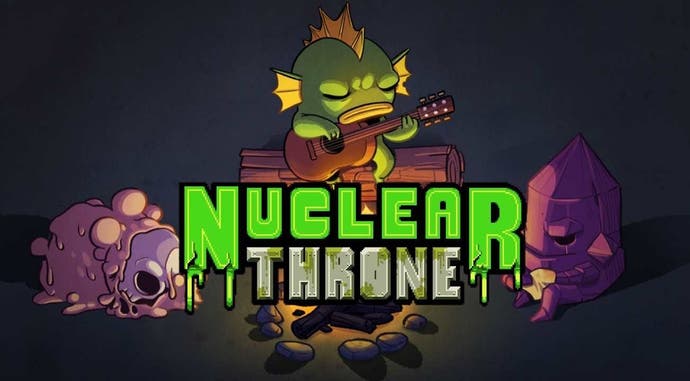
Few games capture all that's great about Early Access development quite as well as Nuclear Throne, Vlambeer's fidgety tribute to gore and camera shake and crossbow bolts through the head. This is an action roguelike - a perfect candidate for a game that will get better as more pieces get added - and the developer's turned regular updates into something that approaches appointment television, with livestreams and lots of chatter between designers and players. Best of all, Vlambeer's using this approach to take real risks, with experimental character classes that turn the rules on their heads. It's like watching a gumbo bubbling away on the stove, basically, while the cook throws in anything and everything. Except it's not boring old gumbo - it's a Vlambeer shooter, and it's amazing.
Armello
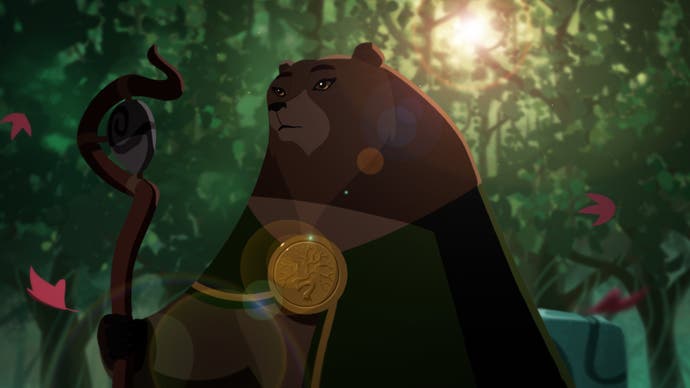
League of Geeks hasn't had its digital board game up on Early Access for very long, but it's already delivered one fairly expansive update overhauling various player systems and tinkering with the AI. Promisingly, there's some more stuff on the way, too, including new playable characters and an added sense of clarity to the mid-game.
Armello is already beautiful, with delicate art and wonderful writing. What's really making it stand out on Early Access, though, is that mechanics-driven games like this lend themselves perfectly to iterative design. An injection of new cards, or a tweak to AI behaviour can radically change the entire flow of the game; a small amount of work can make a big difference.
Broforce
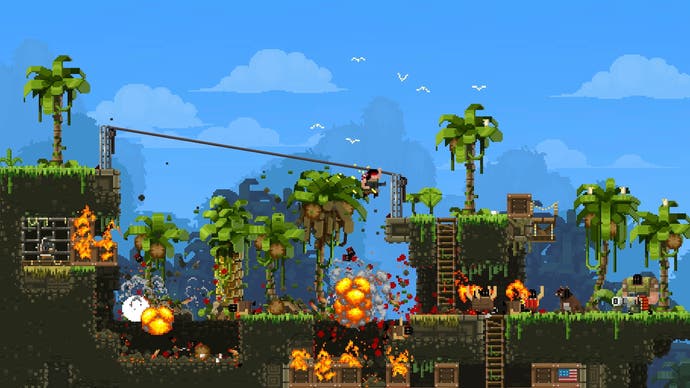
Broforce is an insanely destructive side-scrolling shooter in which players can chip away at the scenery as well as their enemies. Better yet, it's in love with action cinema of the 1980s and 1990s, which means that every new update brings you another chunk of your wasted childhood. There are already plenty of playable characters, ranging from a handful of different Van Dammes and Arnies, and the campaign's been coming together alongside a level editor and a handful of tile-sets. The latest update brought in Aliens, however, adding a twist of genuine body horror to an otherwise knockabout world, and revealing, in the space of one patch, why watching a game build itself in front of its audience can be surprisingly thrilling.
Prison Architect
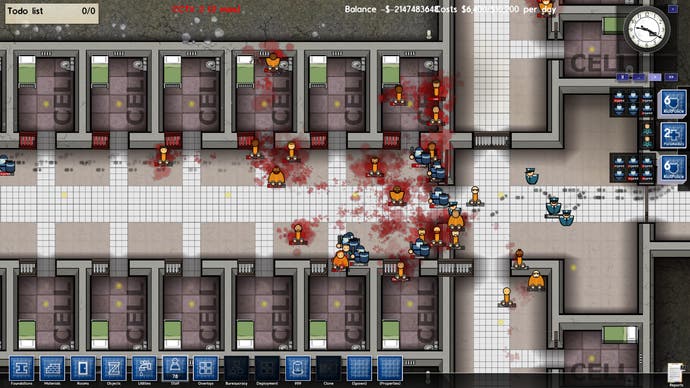
Prison Architect's Early Access status seems almost hard-coded into Introversion's game, which has been playable in various states since September 2012. It's almost part of the game's charm, seeing its systems cobbled together around you as you try and construct your own penal colonies. Regular monthly updates have seen Prison Architect go from shabby curiosity to something truly engaging, a worthy successor to the likes of Dungeon Keeper that's got a malicious sense of humour that's all its own. What's more, Early Access seems like an absolutely perfect fit for both Introversion, a developer with a big heart and even bigger ideas, and for the players of its off-beat creations.
Darkest Dungeon
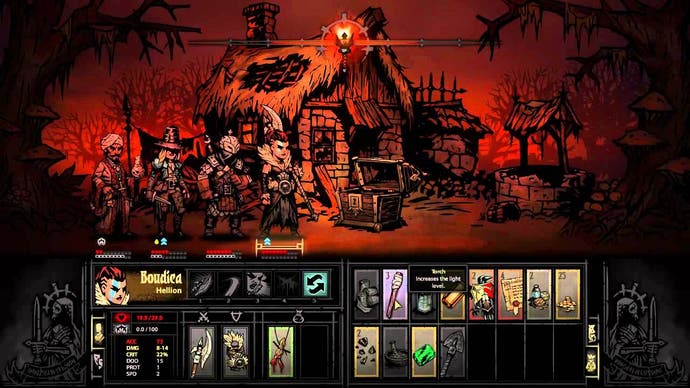
Sometimes, Early Access isn't just about the updates and the low price point, it's about giving a small development team the freedom to do something that most publishers would probably choke on. And sometimes, that something turns out to be fantastically successful despite the strange pitch. Enter Darkest Dungeon - a procedural hack and slash in which the focus is on monitoring the shaky mental states of your party. There isn't quite enough richness to the systems to allow for true emergent chaos yet, but this is already a fascinating prospect, and an RPG that ventures deeper beneath the skin than almost any other.
Besiege
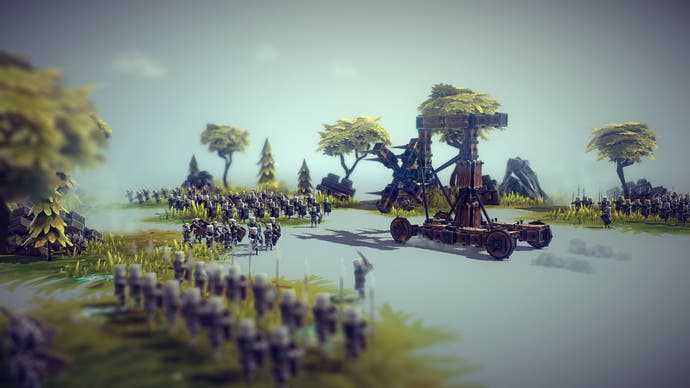
Early Access games have a reputation for delivering builds that combine lavish ambition with dozens os missing features. Besiege is interesting because it's the exact opposite. This medieval construction game is fiercely polished stuff, right down to the stylish UI and the hilarously brutal physics. There just isn't much to it yet: hence £4.99.
What there is suggests we're in for a treat, though, as you construct your own siege towers and then pit them against a range of knockabout challenges, many of which include sheep that are just itching to be set ablaze. Even if you spare the flock, you're likely to do yourself in - and have a wonderful time while you're at it.
Infinifactory
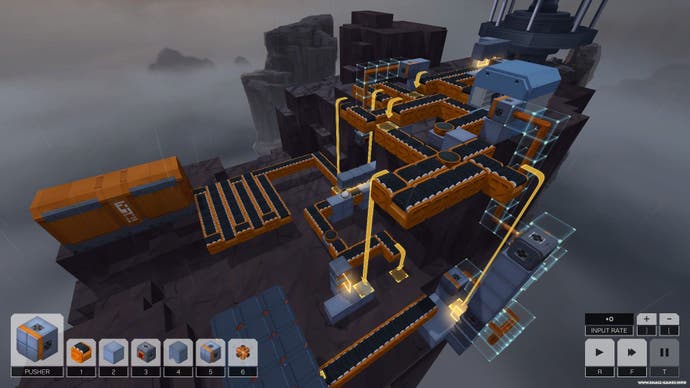
Zachtronics' 3D follow-up to SpaceChem is clever. Not just in the way that it uses the handicraft promise of 3D printing to construct a range of ingenious get-A-to-point-B puzzles that encourage tinkering and playfulness as much as straight-up logic, but in the way that it's using Early Access. Infinifactory is superficially polished, and it's also positively hectic with content. At the end of each level, though, you are invited to fill in a very short survey saying what you made of the challenge you've just completed. Crowd-sourced opinions are the very kind of things that games like Inifinifactory tend to parody in their post-Portal storylines. Ironically, people power is also helping to make the final product a smarter, and more human strain of puzzler.
Subnautica

What does it take to bring new life to the over-subscribed survival genre? Water, and lots of it. Subnautica drops you into a gorgeous marine landscape of reefs and reeds and lurking horrors that can't wait to put a spiny stalk through your sternum, and while the basics of crafting and exploring are already in place, there's a real sense that the finer detailing of the game has yet to be nailed down. The next few months will tell is Subnautica can do its wonderful premise justice, but smart player-centric elements, such as the option to toggle starvation on or off, suggest that the developer's on the right track.
Dungeon of the Endless
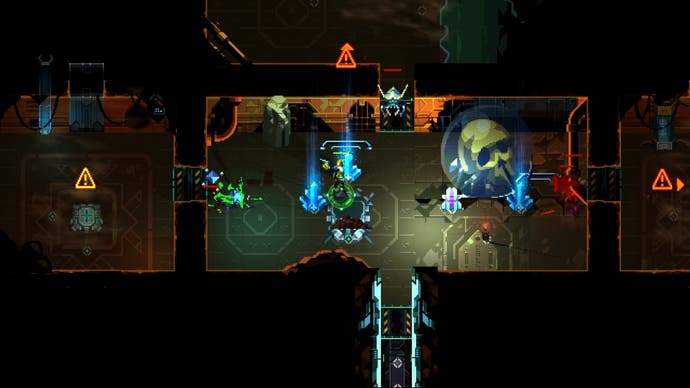
Amplitude Studios was making Early Access games before Valve even had a tab on Steam to host them, and that experience shows. Following up Endless Legends, a game that steadily rose from some confusing, if beautiful, foundations, to tower above most of the 4X landscape, Dungeon of the Endless is a daring genre mash-up that sees you exploring procedurally-generated cave networks while building tower-defence-style turrets and humping a crystal about. Throw in elegant pixel-art, which absolutely refuses to orbit the same boring old 16-bit influences, and a development team that knows exactly what kind of input to solicit from its audience, and you have a strange and darksome treat.
Compiled by the Eurogamer editorial team and written by Christian Donlan and Martin Robinson
